The impact of COVID-19 on HIV, TB and Malaria Services and Systems for Health: A snapshot from 502 health facilities across Africa and Asia.


The impact of COVID-19 on HIV, TB and Malaria Services and Systems for Health: A snapshot from 502 health facilities across Africa and Asia.
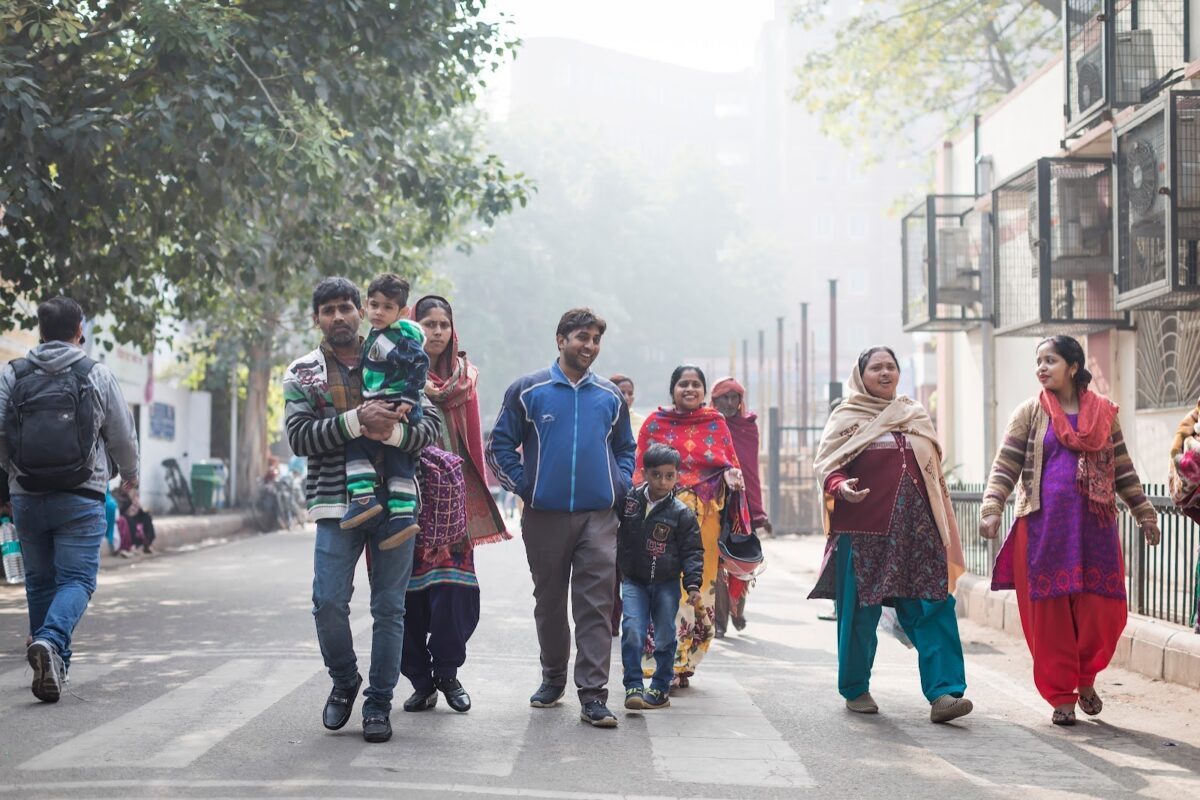
Regional Roundtable meeting on
‘Access to COVID-19 Tools-Accelerator (ACT-A)
diagnostics pillar’ in the
WHO South-East Asia Region
New Delhi, India, 24 August 2021
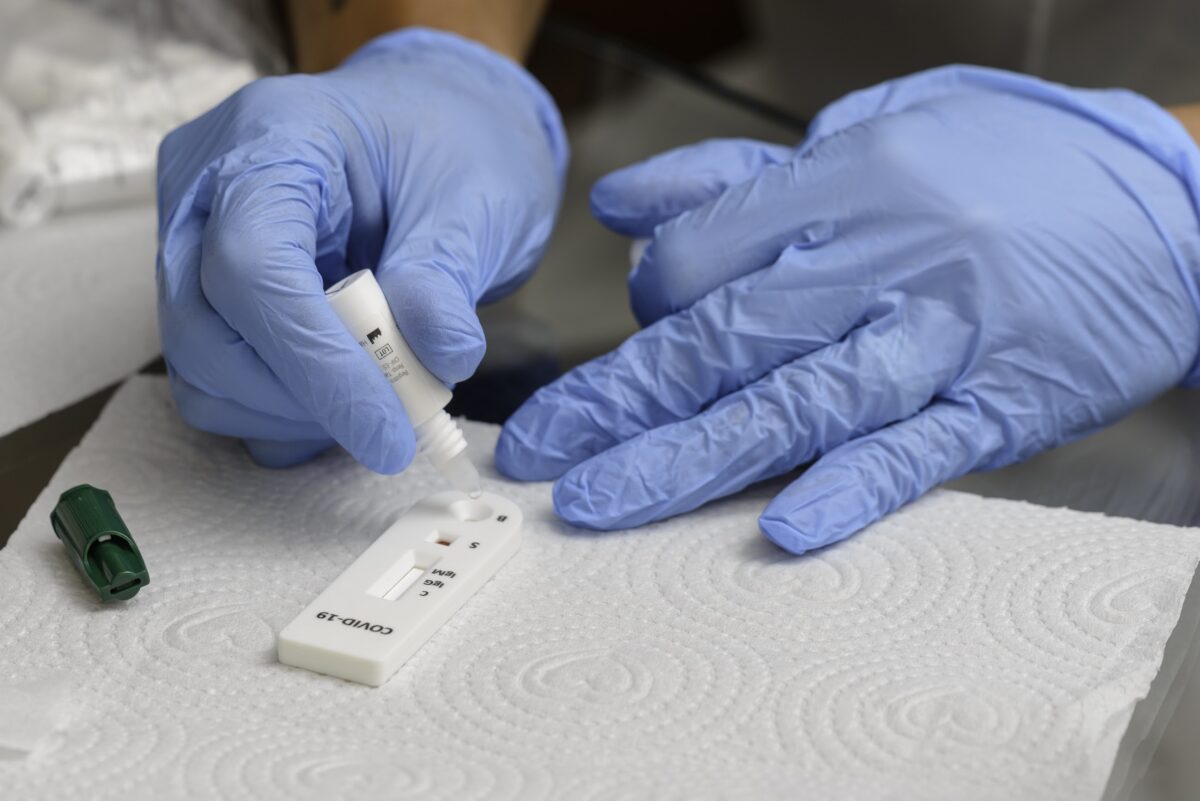
COVID-19 Diagnostics are tests used to detect infection with the SARS-COV-2 virus.
Download Information Sheet: English
Download Information Sheet: French

Diagnostics are an essential part of a well functioning and high-quality health system. Yet, almost half of the global population has little or no access to diagnostics. The COVID-19 pandemic has shown acutely that diagnostic capacity in a country is directly linked to the ability to respond to the pandemic with appropriate public health measures and to monitor emerging variants. There is an urgent need to strengthen diagnostics for future pandemic preparedness but also beyond pandemics. Diagnostics are central to an accurate diagnosis of communicable and non-communicable diseases, to guide therapy, monitor progress, and assess response to treatment. The Commission puts forward recommendations to accelerate and transform access to diagnostics globally.
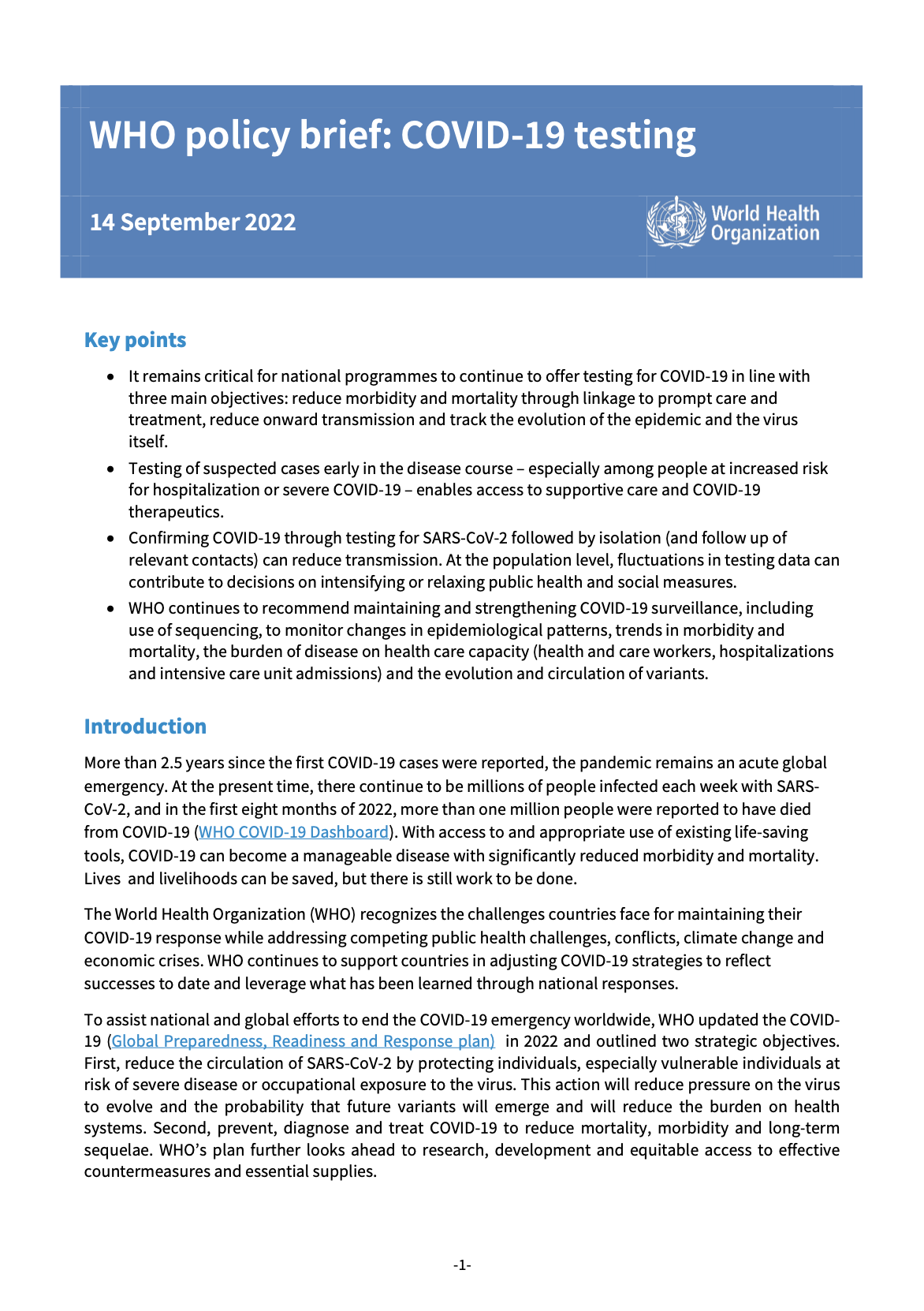
Key points

Implementers of Global Fund-supported programs must ensure the diagnostic products they purchase meet our partnership’s quality standards.

T7 Task Force Global health
Policy Brief
THE ESSENTIAL ROLE OF DIAGNOSTICS IN GLOBAL HEALTH & DEVELOPMENT
20.05.2022
Bill Rodriguez FIND, the global alliance for diagnostics Willo Brock FIND, the global alliance for diagnostics Karishma Saran FIND, the global alliance for diagnostics
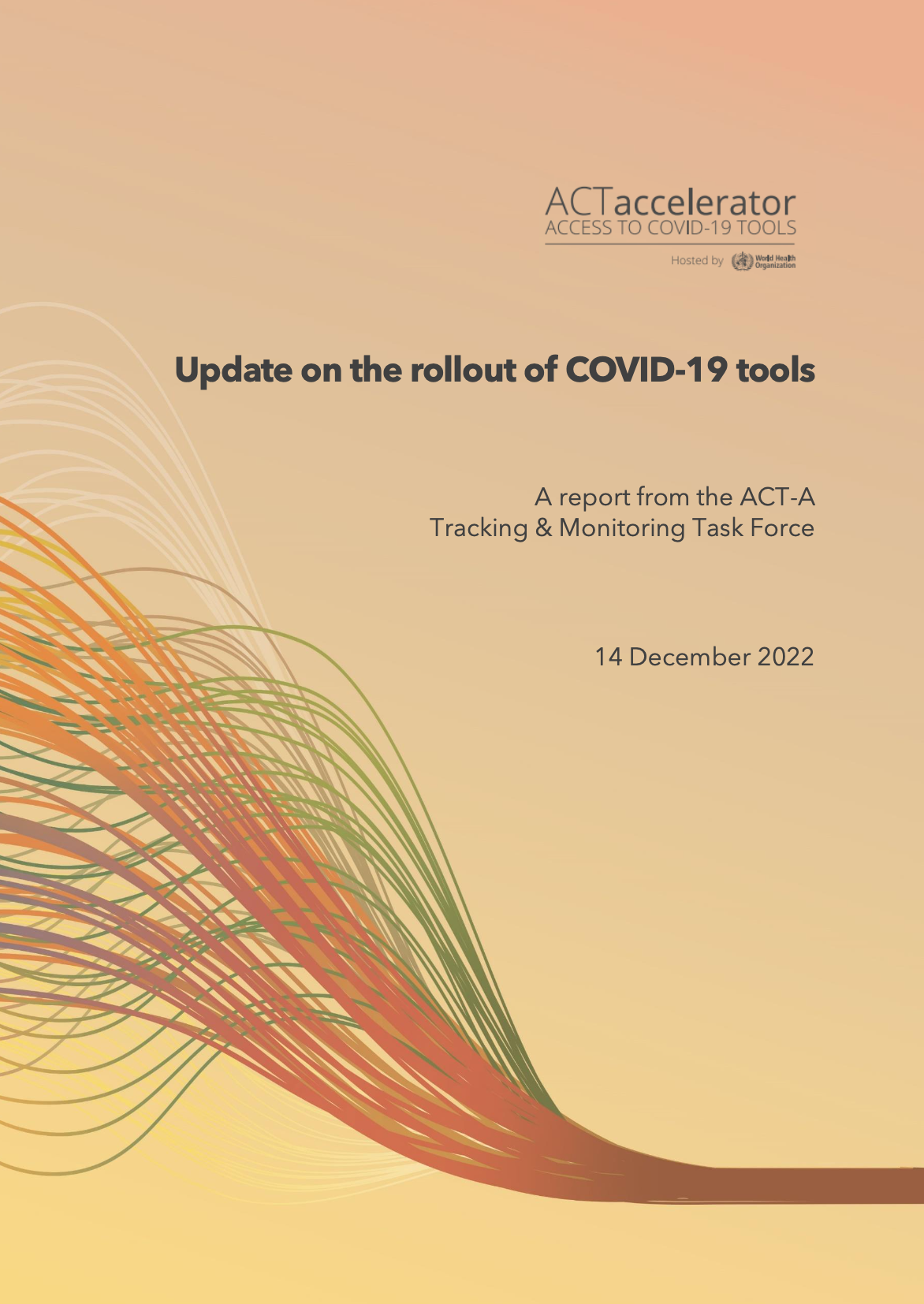
This report is an outcome of the first meeting of the ACT-Accelerator Tracking and Monitoring Taskforce, held on 9th December 2022. This new taskforce – co-chaired by India and the United States – continues key elements of the work of the Facilitation Council and its working groups. The report includes an outcome statement by the Co-Chairs and provides a briefing on the current status of the rollout of COVID-19 tools, including what actions are needed in the short-term to accelerate the work of ACT-A agencies and partners.
More information on the taskforce can be found here.
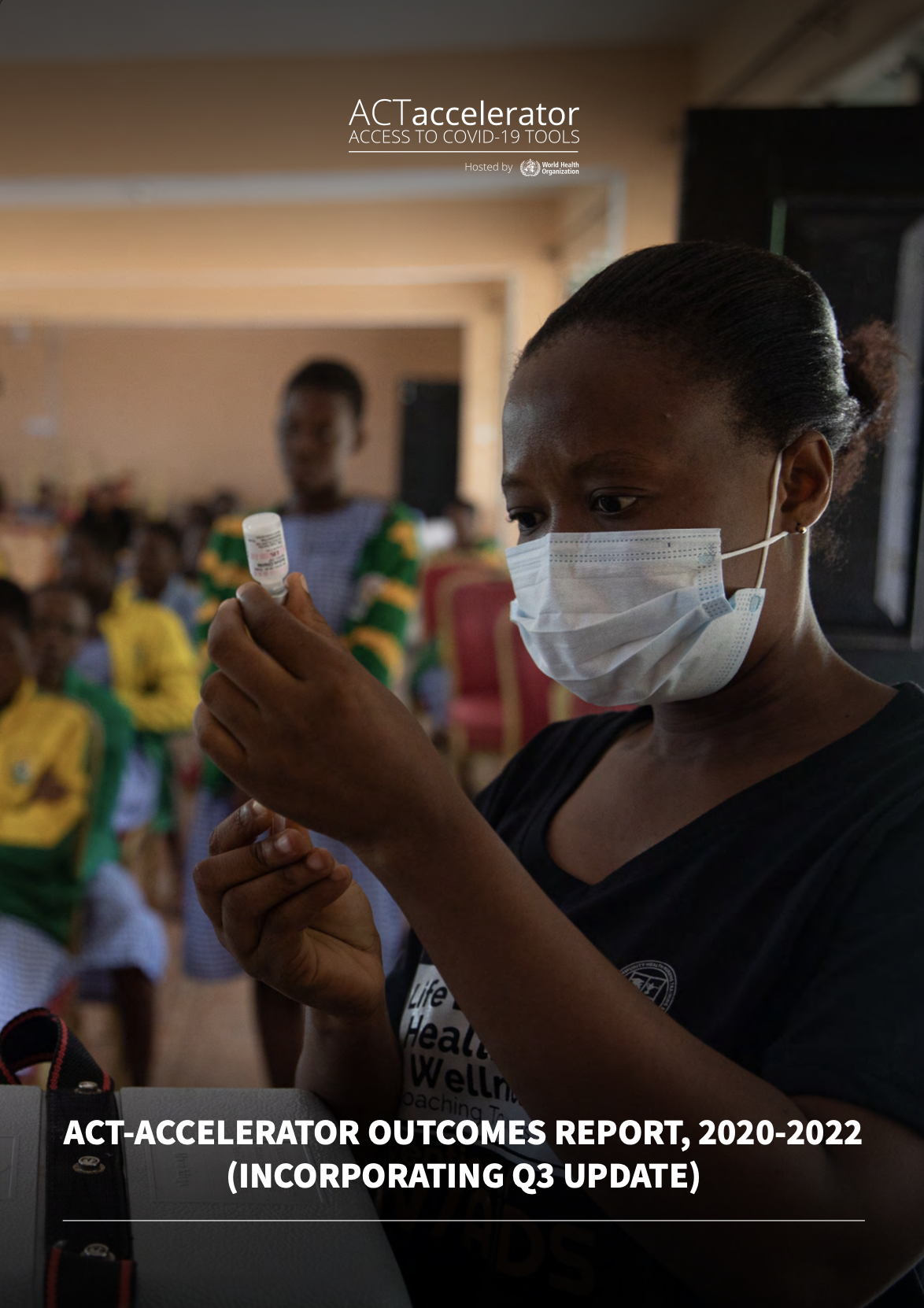
This report provides information on cumulative achievements of the ACT-Accelerator partnership since the start of the pandemic to end September 2022, an account of the outcomes of the four Pillars’ work towards the milestones set out in the 2021-22 Strategic Plan, and incorporates the regular Q3 Update. Additionally, six Impact Stories demonstrate the real-world impact of the partnership in countries, focusing on areas such as expanding access to medical oxygen, accelerating vaccine delivery and rolling out test and treat pilots.
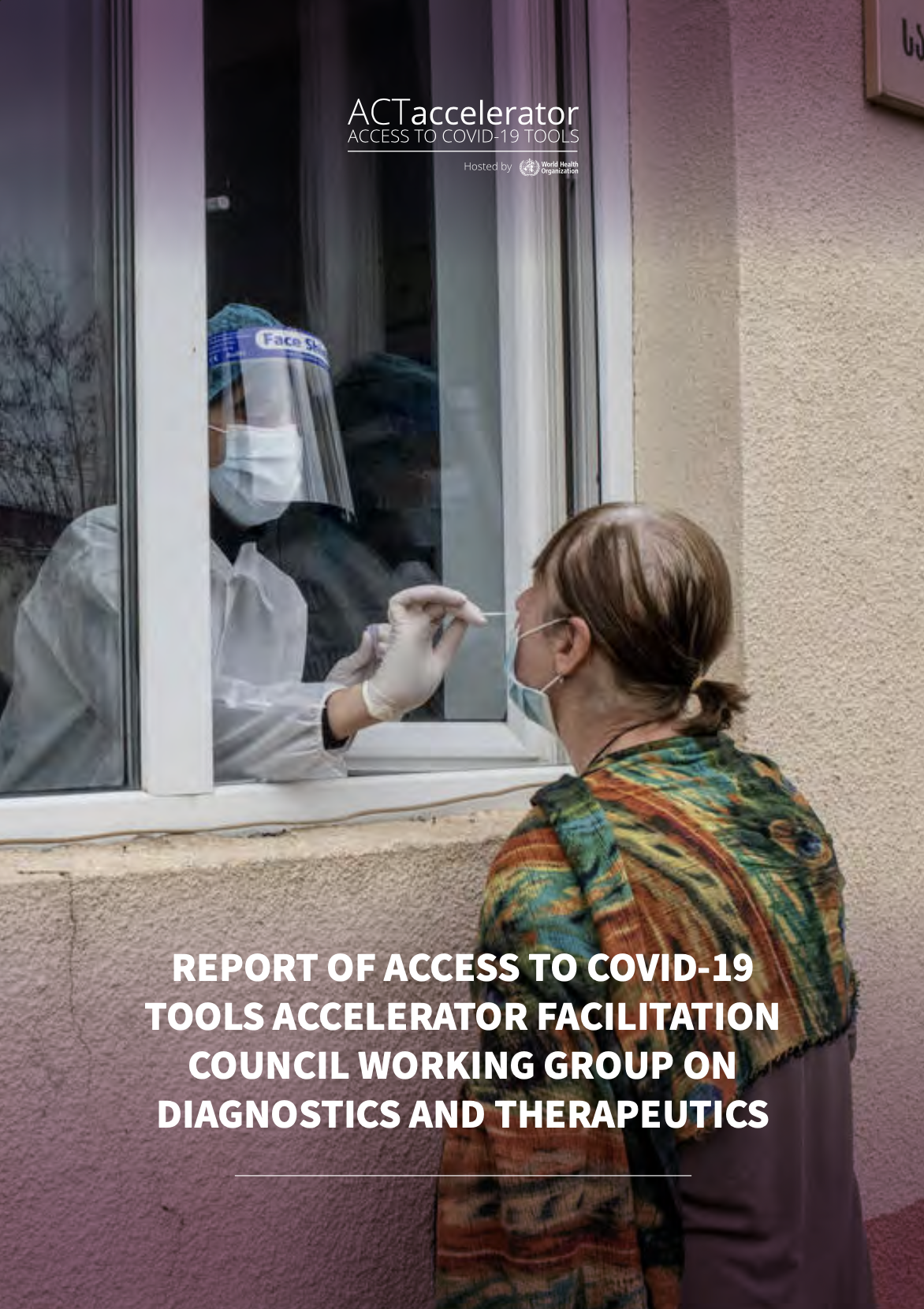
The COVID-19 pandemic requires a complete public health response that spans non-pharmaceutical interventions and medical countermeasures to mitigate the impact of the virus on lives and livelihoods. Despite this need, the equitable roll-out of COVID-19 diagnostics and therapeutics continues to be inadequate and threatens to undo public health gains achieved throughout the pandemic.
This report’s central premise is that diagnostics and therapeutics, and associated test to treat strategies, are fundamental components of the pandemic response, both for COVID-19 and for future health threats. Two years into the COVID-19 pandemic, this report reflects on the main challenges and key solutions on the road to equitable access to diagnostics and therapeutics.
This report draws from experience gained through the Access to COVID-19 Tools (ACT) Accelerator Diagnostics and Therapeutics pillars, and includes the perspectives of collaborating stakeholders (countries, civil society representatives and the private sector). Building on these findings, this report proposes sixteen recommended actions to address what have been identified as key structural challenges and specifies a potential owner for each action. The report offers a potential high-level roadmap of where efforts should be concentrated to support country-level decision-making.